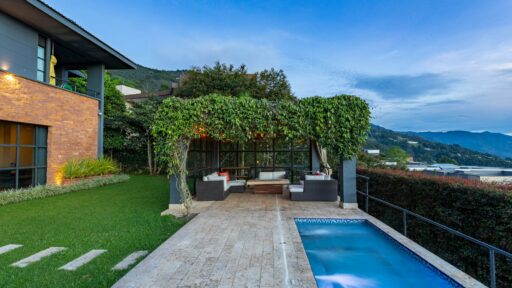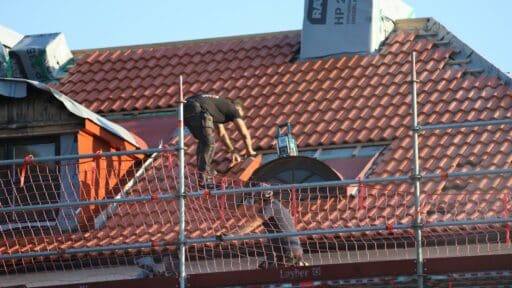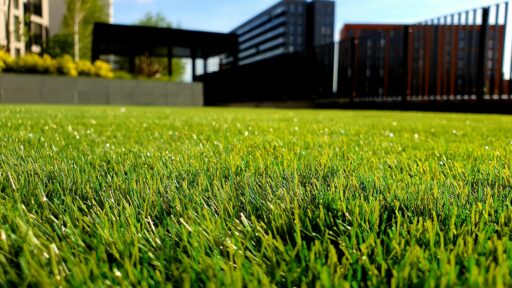Greenhouses are significant investments. Whether you are a hobby gardener or managing a large agricultural project, the type of glass you use makes all the difference. Choosing the right green house glass Supplier is a critical decision that impacts light transmission, thermal efficiency, durability and overall cost. In this guide, we’ll walk you through what to look for, particularly if you are seeking a green house glass Supplier in Bedford, and explain why trusted Glass Manufacturers and Suppliers like Ipswich Glass are often the most reliable partners.
What Makes Glass Suitable for Greenhouses
To understand what differentiates one glass product from another, you first need to know the technical and practical qualities that matter.
Light Transmission and UV Filtering
High light transmission is essential. Plants require sunlight for photosynthesis; clear glass allows as much visible light through as possible. However, too much UV light can damage delicate plants or cause overheating. A good green house glass should allow high PAR (Photosynthetically Active Radiation) transmission while filtering harmful UV rays. Some glasses are coated or treated to reduce UV transmission without significantly reducing visible light.
Thermal Insulation (U-value / R-value)
In cooler climates, like many parts of England, insulation is essential. The U-value (or R-value, the inverse) measures how well a material keeps heat in. Single-glazed glass has poor insulation; double-glazed or low-iron, low-e glass with gas fills can dramatically improve retention of warmth overnight. A high performing green house glass Supplier should specify the U-value ratings of their products.
Durability and Safety (Toughened, Laminated)
Greenhouse glass must endure weather — hail, wind, heavy rain — and accidental impacts. Toughened (tempered) or laminated glass resists breakage or contains shards safely. Consider safety standards (such as BS EN 12150 in the UK for toughened glass). Suppliers should offer glass that meets or exceeds safety regulations.
Thickness and Weight Considerations
Thicker glass tends to be stronger and more insulating, but heavier, which means stronger frames and foundations. Many greenhouses use 3-6 mm glass; high performance or large span greenhouses might need thicker panes. The supplier should advise what thickness is suitable for your design, span and environment without adding unnecessary cost.
Glass vs Alternatives (Polycarbonate, Plastic Film)
While glass is classic and offers excellent clarity and strength, alternatives like polycarbonate or horticultural plastic films have advantages: lower weight, lower initial cost, easier to replace. But they degrade faster, may yellow, and typically insulate less. A credible green house glass Supplier will help you weigh pros and cons, not simply push glass.
Key Qualities You Should Look for in a Green House Glass Supplier
Selecting the right supplier is as important as the type of glass itself. Below are the essential qualities.
Product Quality and Certifications
Look for suppliers whose glass complies with British and European standards (BS EN, CE marking etc.). Quality glass should also provide accurate data: light transmission, U-value, impact resistance. Any reputable green house glass Supplier will produce test certificates and samples.
Custom Sizing and Fabrication
Every greenhouse design differs. Suppliers who can cut custom shapes, grind edges, seal double-glazed units or curve glass panels are much more valuable. If you need bespoke dimensions or features such as vent panels or ventilation louvers, ensure the supplier can accommodate.
Delivery & Logistics Services
Glass is fragile; transportation matters. Check whether the green house glass Supplier offers careful packaging, padded frames, correct crating, and reliable delivery. For those looking for a green house glass Supplier in Bedford, having supplier located nearby or with local reach reduces transit damage risk and cost.
Warranty and After-Sales Support
Glass failures, seal leaks or installation issues can happen. Good suppliers provide warranties on glass quality and seal integrity. After-sales support — replacement of broken panes, advice on maintenance — is a good indicator of their commitment to long-term customer satisfaction.
Cost vs Value Analysis
Cheapest quotes aren’t always best. You must balance initial cost vs lifetime performance (energy savings, durability, reduced maintenance). Sometimes spending a bit more on low-iron, toughened, well-insulated glass pays off in decades of better plant growth and lower heating bills.
Green House Glass Supplier in Bedford: Why Local Matters
If you are based in or around Bedford, choosing a local green house glass Supplier in Bedford has real advantages.
Reduced Transport Costs & Carbon Footprint
Glass transport involves handling heavy fragile materials. Local supply means shorter distances, lower transport cost, less packaging, reduced risk of damage. Environmentally, less transport means lower carbon emissions. Local sourcing is more sustainable.
Faster Response Times and Local Knowledge
A Bedford-based supplier understands local climate, frost risk, building regulations, wind exposure. They can advise what glass thickness, coatings or styles are appropriate. Local suppliers can also respond faster in emergencies (broken panes, urgent replacements).
Compliance with Local Building/Regulation Norms
Building codes, planning permissions and greenhouse regulations may vary locally. A supplier familiar with Bedford regulations will help you avoid costly mistakes — e.g., specifying safety glazing where required, ensuring wind-loading compliance, or satisfying planning aesthetic requirements.
Supporting the Local Economy
Buying from a green house glass Supplier in Bedford supports local business, jobs, and expertise. Local suppliers often provide more personalised service, because their reputation is visible in the community.
Glass Manufacturers and Suppliers: How They Differ from Regular Suppliers
There’s a difference between companies that manufacture glass versus those who simply distribute it. Understanding that difference helps you choose better.
Manufacturing Process and Control
Glass Manufacturers and Suppliers control their own production lines: sourcing raw materials, controlling tempering, laminating, sealing double or triple glazing. This tends to result in tighter quality control, better consistency of product, more innovative options (coatings, tinted glass, low-iron etc.).
Ability to Customise
Manufacturers can respond to bespoke requests: unusual shapes, unique thicknesses, specialist coatings, specific profiles. Non-manufacturing suppliers may only carry standard catalog items and mark up cost for custom work.
Large-Scale Supply Capacity
For large greenhouse farms, botanical gardens or commercial operations, you need bulk supply. Manufacturers often have capacity to produce large volumes and maintain stock. Suppliers without manufacturing may need to source from third parties, which adds cost and causes delays.
Price Variation Between Direct Manufacturers and Intermediaries
Often, going direct to a manufacturer reduces cost per square metre, especially for large orders. Intermediary distributors might add mark-ups. However, direct manufacturers may have higher minimum order sizes or longer lead times. Always ask for detailed pricing.
Working with Specialist Providers: Ipswich Glass as a High-Quality Glass Supplier
At Ipswich Glass, we strive to be more than just a green house glass Supplier; we aim to be your trusted partner in achieving better growth, greater efficiency, and lasting performance.
Our Manufacturing / Sourcing Standards
Ipswich Glass adheres to strict British and European standards. Our greenhouse-grade glass is toughened or laminated as required, double-glazed for better U-value performance, and precisely cut to correct tolerances. When you order from Ipswich Glass, you’re getting clarity, structural safety, and optimal light transmission.
Examples of Greenhouse Glass Solutions We Provide
We supply panels with anti-UV coatings, diffuse glass that disperses light to reduce hotspots, low-iron glass for maximum light purity, and double-glazed units filled with inert gas for thermal insulation. Whether you need standard 4 mm clear glass or specialist curved toughened panels, Ipswich Glass can supply exactly what a project needs.
Project Case Studies
For instance, a commercial greenhouse near Bedford was fitted with double-glazed, low-iron toughened glass supplied by Ipswich Glass. The result: a 25% improvement in heat retention in winter, reduced heating costs, and healthier plant growth. In smaller residential greenhouse projects, homeowners have praised the durability and clarity. Ipswich Glass has serviced both and ensured minimal lead-time.
Service Guarantee and Customer Support
We offer warranties on breakage and seal integrity, plus replacement services. Ipswich Glass provides clear delivery schedules, protective packaging, and installation advice. Our customer support listens to your greenhouse’s needs and makes sure your solution matches, whether you are sourcing from us locally around Bedford or from further afield.
Installation, Maintenance, and Long-Term Performance Considerations
Even the best glass cannot perform if installation or upkeep is poor. These practical aspects ensure longevity.
Correct Installation for Longevity
Glass must be supported evenly; frames should have adequate support bars; seals around double glazing must be watertight. Improper installation can cause stress points, leading to cracking or breakage. When choosing your green house glass Supplier, ensure they provide or recommend installer training or certified installers.
Cleaning and Maintenance Tips
Glass tends to accumulate algae, dirt, bird droppings. Regular gentle cleaning with non-abrasive, pH-neutral cleaners helps maintain light transmission. Avoid harsh chemicals that degrade coatings. Inspect seal joints annually. Any glazing putty or sealant should be checked for deterioration.
Repair and Replacement Options
Accidents happen. A fallen branch, storm damage or accidental impact can crack or shatter panes. A good supplier will offer spare glazing panels or matching replacements. For double-glazed units, replacement of failed seals is often needed; ensure the supplier stocks compatible units.
Seasonal and Environmental Stress Effects
Hail, snow, strong winds, UV exposure all stress the glass. In colder months, condensation can cause frost damage; glass should allow for thermal expansion. Visit how the glass behaves in your area. If you live in a place with heavy snow, thicker and toughened glass is essential.
How to Choose the Best Green House Glass Supplier for Your Needs
Having covered the technical qualities and service elements, here is how you bring them together in decision-making.
Assess Your Greenhouse Type and Climate
What variety of plants are you growing? Do you need maximum light, or some shading? What are average winter lows and summer highs? For Bedford climate, occasional frost and moderate summer heat mean you need glass that balances insulation with ventilation. Define the span, roof angle, and exposure; these influence glass type.
Get Multiple Quotes and Compare
Ask for proposals from several green house glass Supplier options. Compare not just price per square metre, but included services (cutting, edging, delivery, warranty). Ensure quotations specify light transmission, U-value, thickness. Lower cost may hide higher total cost later.
Ask for Samples or Demonstrations
Request small sample panes or case studies of existing installations. Seeing the clarity, frame compatibility, and workmanship in person helps judge quality. Examine edge finish, glass quality, any distortion under sunlight. Glass Manufacturers and Suppliers with their own production facilities often welcome site visits.
Check Reviews and Past Projects
Testimonials, references or reviews — especially from projects like yours — are vital. If a green house glass Supplier in Bedford has supplied similar greenhouses, you can see how their glass has stood up to local weather. Do they honour warranties? Are there complaints?
Conclusion
Selecting the right green house glass Supplier is not simply about order cost; it’s about long-term performance, safety, energy efficiency, and support. Whether you are local in Bedford or further afield, always prioritise suppliers who deliver on product quality, local understanding, and after-sales service. As a leading provider, Ipswich Glass combines all these advantages: top-grade greenhouse glass, tailored solutions, prompt local delivery, and reliable customer support. Choose carefully, and your greenhouse will serve its purpose for years to come.








